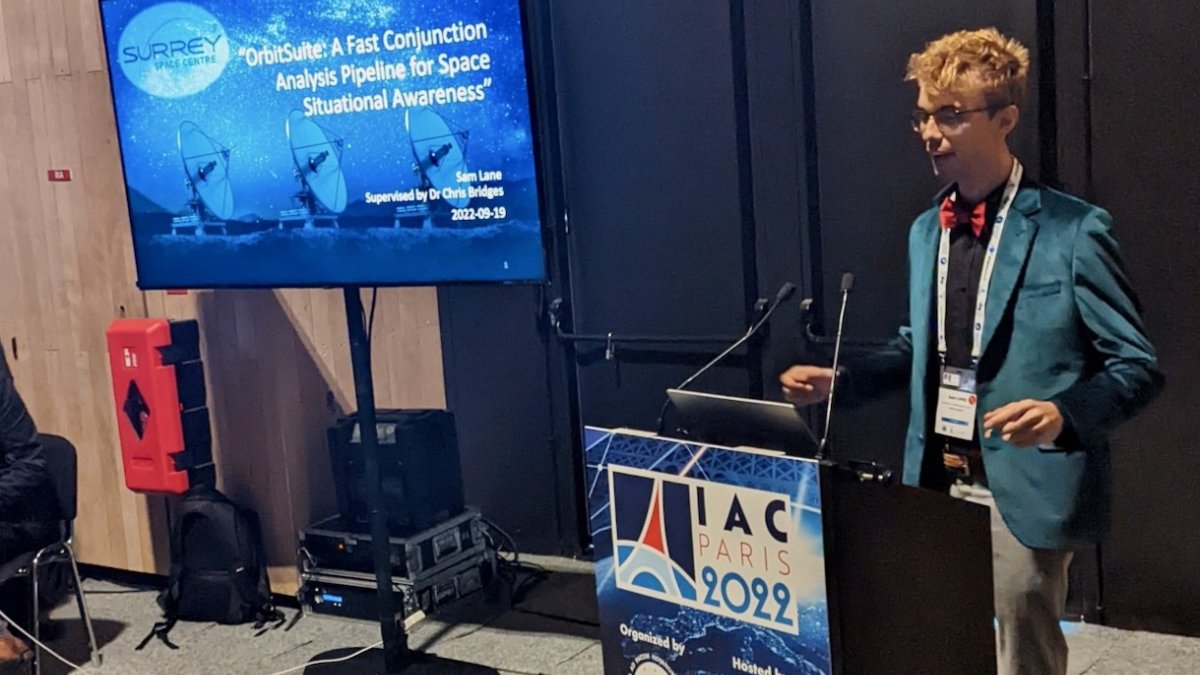Surrey PhD student wins best student paper at IAC2022
Sam Lane, who’s in the first year of his PhD in Surrey Space Centre, presented his research to leading players in the global space industry and was awarded ‘best student paper’ at the International Astronautical Congress 2022 (IAC2022), held in Paris in September.

Sam presents his research at IAC2022.
The Student Paper prize is co-sponsored by the British Interplanetary Society (BIS) and Institution of Engineering and Technology.
Sam’s research paper focused on the novel computational technique he’s developed for ‘conjunction analysis’ which is used to determine whether or not satellites in space are going to collide. Sam’s technique is many times faster than traditional methods due to being highly optimised for the computer hardware on which the simulator runs.
He explains: “We computed a huge dataset of every time space objects (satellites, trackable debris etc) have come close to each other since the early days of spaceflight in 1957. This process, which would normally have taken six to eight months, was achieved in 11 days. We are using this dataset to make predictions on future evolution of the space environment as well as determining requirements for future observational techniques.”
Current systems only let us estimate a satellite’s position to within around 5km but, Sam argues, this is completely insufficient given that large constellations of satellites such as Starlink are being launched and co-inhabit similar orbital regions. Sam’s PhD focuses on the development of improved technology and solutions to produce early and accurate warnings of space object conjunctions which could result in collisions.
Sam was presented with the IAC22 best student paper prize by Alistair Scott, Acting President of BIS.
He says: “The opportunity to present my work to such a wide and varied audience was very valuable from a networking perspective as it opened several more avenues down which my work can progress and opened more opportunities to present my work in the future.”
Read more about Surrey’s participation in IAC2022.
Discover our courses in electrical and electronic engineering including our Space Engineering MSc and Space Engineering PhD.